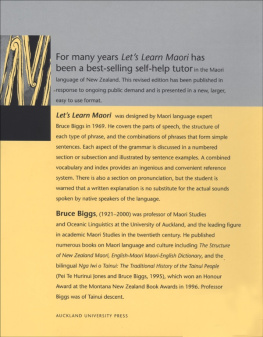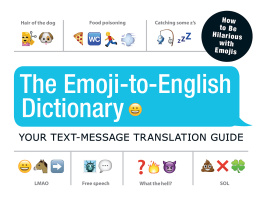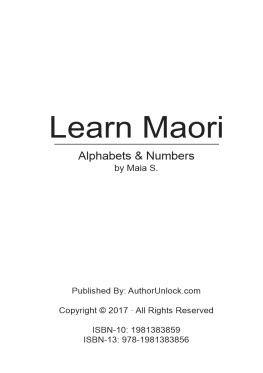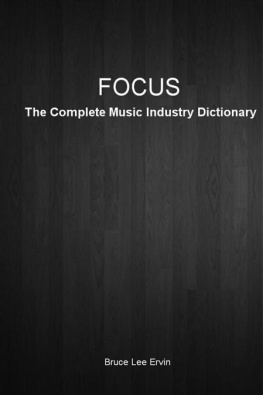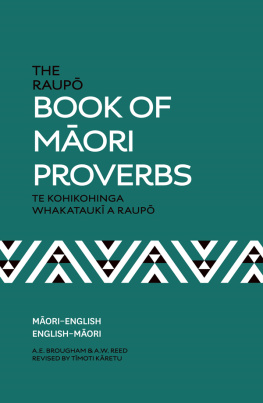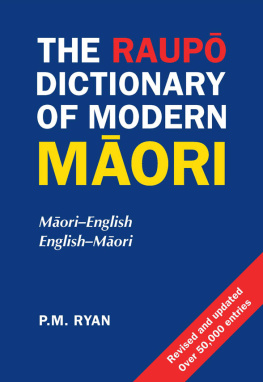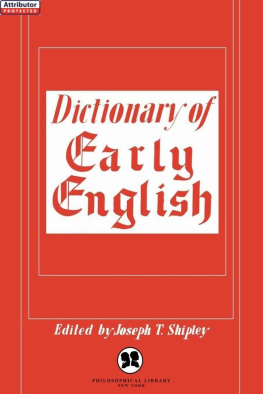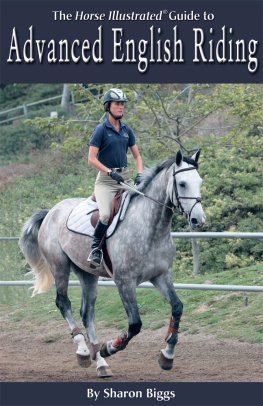Bruce Biggs - The Complete English–Maori Dictionary
Here you can read online Bruce Biggs - The Complete English–Maori Dictionary full text of the book (entire story) in english for free. Download pdf and epub, get meaning, cover and reviews about this ebook. year: 1995, publisher: Auckland University Press, genre: Detective and thriller. Description of the work, (preface) as well as reviews are available. Best literature library LitArk.com created for fans of good reading and offers a wide selection of genres:
Romance novel
Science fiction
Adventure
Detective
Science
History
Home and family
Prose
Art
Politics
Computer
Non-fiction
Religion
Business
Children
Humor
Choose a favorite category and find really read worthwhile books. Enjoy immersion in the world of imagination, feel the emotions of the characters or learn something new for yourself, make an fascinating discovery.

- Book:The Complete English–Maori Dictionary
- Author:
- Publisher:Auckland University Press
- Genre:
- Year:1995
- Rating:4 / 5
- Favourites:Add to favourites
- Your mark:
- 80
- 1
- 2
- 3
- 4
- 5
The Complete English–Maori Dictionary: summary, description and annotation
We offer to read an annotation, description, summary or preface (depends on what the author of the book "The Complete English–Maori Dictionary" wrote himself). If you haven't found the necessary information about the book — write in the comments, we will try to find it.
The Complete English–Maori Dictionary — read online for free the complete book (whole text) full work
Below is the text of the book, divided by pages. System saving the place of the last page read, allows you to conveniently read the book "The Complete English–Maori Dictionary" online for free, without having to search again every time where you left off. Put a bookmark, and you can go to the page where you finished reading at any time.
Font size:
Interval:
Bookmark:
The Complete
English-Maori Dictionary A pioneering work first published in 1981, this dictionary remains an essential reference work for all study of the Maori language. It was designed as a comprehensive finder-list and is still by far the most extensive available. Over 15,000 headwords are given, each of which may have as many as several hundred Maori equivalents. For example, the English entry thousand has just one Maori word, mano, entered against it, spurt has 13 equivalents, and bird, a has about 400 equivalents representing all the Maori names of bird species. All the Maori words contained in Williamss Maori Dictionary appear here under English equivalents, together with words recorded in Tregears Maori-to-English Dictionary but not in Williams. Well-established Maori borrowings from English are also included.
Bruce Biggs (19212000) was a distinguished scholar of the Maori language and a world expert on Polynesian languages. Of Tainui descent, he was professor emeritus of Maori studies and Oceanic linguistics in the University of Auckland and the author of many books on Maori language and culture including English-Maori Maori-English Dictionary (1990), Nga Iwi o Tainui: The Traditional History of the Tainui People (Pei Te Hurinui Jones and Bruce Biggs, 1995) and Lets Learn Maori (3rd ed, 1998).
ENGLISH-MAORI DICTIONARY

Williams which was substantially different from the earlier version and contained a few hundred more entries. English borrowings were distinguished by a different type face. Subsequent editions were retitled A Dictionary of the Maori Language and contain no English to Maori section. Edward Tregears The Maori-Polynesian Comparative Dictionary contains a key to the Maori words, again numbering about 4,000 English headwords, but with many of them having a large number of Maori equivalents listed. The entry for weapon, for example, has thirty-one Maori names of types of weapon listed against it. The key contains the warning that meanings should be checked in the Maori-English section of the Dictionary if the exact meanings are to be ascertained.
No English-Maori Dictionary appeared during the first half of the twentieth century and as Tregears work and the early editions of Williamss Dictionary had become rare books most students of Maori language were forced to rely on the restricted English to Maori vocabularies found in such tutors and grammar books as were available. Many of us must have compiled our own. On appointment to a lectureship in Maori Studies at the University of Auckland I felt it incumbent upon me to produce something that would be readily available to students and in 1961 I turned out about a hundred copies in mimeo of an English-Maori Finder List, a copy of which came to the attention of the late A. W. Reed, resulting in the publication, in 1966, of a somewhat enlarged version as the first English-Maori dictionary. The number of English headwords hovered around the 4,000 of earlier vocabularies from which it was distinguished by the inclusion of contemporary borrowings from English in an attempt to indicate, for many of the Maori entries, their part of speech according to a classification of bases discussed in the introduction.
During 1967 and 1968 I was teaching at the University of Hawaii and engaged in some comparative Polynesian linguistic research which involved entering on a computer file all of the Maori headwords and their English meanings from the sixth edition of Williamss Dictionary. Someone suggested, I cannot recall who it was, that since the dictionary entries were all to be made available in this way it would be a simple task to have the computer re-order them as an English-Maori lexicon which would be a valuable spinoff from the main, comparative research. It seemed a brilliant idea and eventually I had a first listing of all the English meanings, alphabetically ordered, and each with its Maori equivalents. It was immediately obvious that a great amount of editing would be needed. Some of it was easy. The fourteen repetitions of the headword bird, sea were reduced to one and the fourteen Maori meanings arranged in alphabetical order.
The computer took this sort of thing in its stride. But there were also, in the first listing, six repetitions of bird, a sea that the computer, in its mechanical way, could only regard as separate and not to be integrated with bird, sea. There were a multitude of similar examples and many that were more subtle. Left to itself the computer would list the Maori equivalents of English homonyms together, producing some ludicrous equivalences such as spit (expectorate) being matched with a Maori word meaning to impale, as on a spit. By this time I was back at the University of Auckland where Dr Alan Creak wrote the editing programmes that entered my emendations onto the dictionary file, now a magnetic tape known as MAODICT. Several editings later a listing of that tapes contents was accepted for publication by the Auckland University Press Committee and finally, twelve years after that bright, anonymous idea, the simple task was completed. Along the way other Maori dictionaries and vocabularies were searched for additional entries.
These included Tregears key to the Maori words in his Dictionary, my own English-Maori Dictionary and various other sources. I am greatly indebted to many people for personal and professional assistance, and to a number of funding agencies for financial support. I am grateful for the help received from the National Science Foundation, the Auckland University Research Committee, and the Maori Purposes Fund Board. In thanking Dr Ann Peters and Dr Bob Hsu at the University of Hawaii, and Dr Alan Creak and Mr John Jensen at Auckland University for their unstinted help on the computing side I am mentioning only a few of those who have assisted and encouraged me in many ways.
Since that time there has been a massive migration of Maoris from rural communities where they were often in a Maori-speaking community. Even those who have remained in the country are exposed to English, on television and radio, in a way unknown to earlier generations. The result has been a rapid fall-off in Maori speaking. Dr Bentons survey suggests that fewer than five per cent of Maori children today can speak Maori. This means, inevitably and at best, that fifty years from now there will be few native speakers among the parents of that day. Their children will learn only English as a mother tongue, and Maori, as a living language, will cease to exist.
Next pageFont size:
Interval:
Bookmark:
Similar books «The Complete English–Maori Dictionary»
Look at similar books to The Complete English–Maori Dictionary. We have selected literature similar in name and meaning in the hope of providing readers with more options to find new, interesting, not yet read works.
Discussion, reviews of the book The Complete English–Maori Dictionary and just readers' own opinions. Leave your comments, write what you think about the work, its meaning or the main characters. Specify what exactly you liked and what you didn't like, and why you think so.

